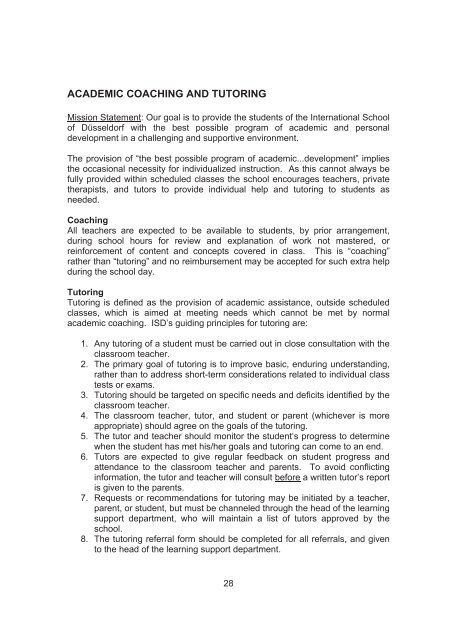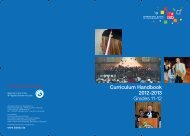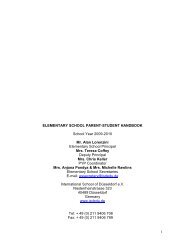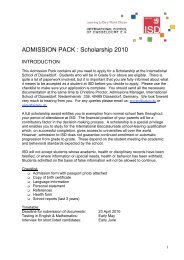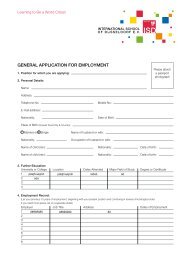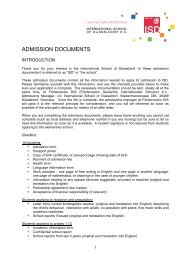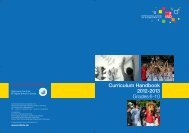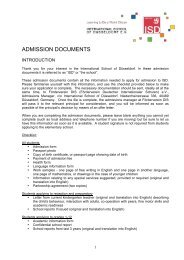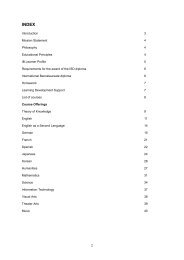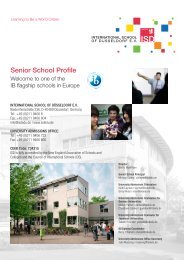SENIOR SCHOOL STUDENT - PARENT HANDBOOK
SENIOR SCHOOL STUDENT - PARENT HANDBOOK
SENIOR SCHOOL STUDENT - PARENT HANDBOOK
Create successful ePaper yourself
Turn your PDF publications into a flip-book with our unique Google optimized e-Paper software.
ACADEMIC COACHING AND TUTORING<br />
Mission Statement: Our goal is to provide the students of the International School<br />
of Düsseldorf with the best possible program of academic and personal<br />
development in a challenging and supportive environment.<br />
The provision of “the best possible program of academic...development” implies<br />
the occasional necessity for individualized instruction. As this cannot always be<br />
fully provided within scheduled classes the school encourages teachers, private<br />
therapists, and tutors to provide individual help and tutoring to students as<br />
needed.<br />
Coaching<br />
All teachers are expected to be available to students, by prior arrangement,<br />
during school hours for review and explanation of work not mastered, or<br />
reinforcement of content and concepts covered in class. This is “coaching”<br />
rather than “tutoring” and no reimbursement may be accepted for such extra help<br />
during the school day.<br />
Tutoring<br />
Tutoring is defined as the provision of academic assistance, outside scheduled<br />
classes, which is aimed at meeting needs which cannot be met by normal<br />
academic coaching. ISD’s guiding principles for tutoring are:<br />
1. Any tutoring of a student must be carried out in close consultation with the<br />
classroom teacher.<br />
2. The primary goal of tutoring is to improve basic, enduring understanding,<br />
rather than to address short-term considerations related to individual class<br />
tests or exams.<br />
3. Tutoring should be targeted on specific needs and deficits identified by the<br />
classroom teacher.<br />
4. The classroom teacher, tutor, and student or parent (whichever is more<br />
appropriate) should agree on the goals of the tutoring.<br />
5. The tutor and teacher should monitor the student‘s progress to determine<br />
when the student has met his/her goals and tutoring can come to an end.<br />
6. Tutors are expected to give regular feedback on student progress and<br />
attendance to the classroom teacher and parents. To avoid conflicting<br />
information, the tutor and teacher will consult before a written tutor’s report<br />
is given to the parents.<br />
7. Requests or recommendations for tutoring may be initiated by a teacher,<br />
parent, or student, but must be channeled through the head of the learning<br />
support department, who will maintain a list of tutors approved by the<br />
school.<br />
8. The tutoring referral form should be completed for all referrals, and given<br />
to the head of the learning support department.<br />
28


